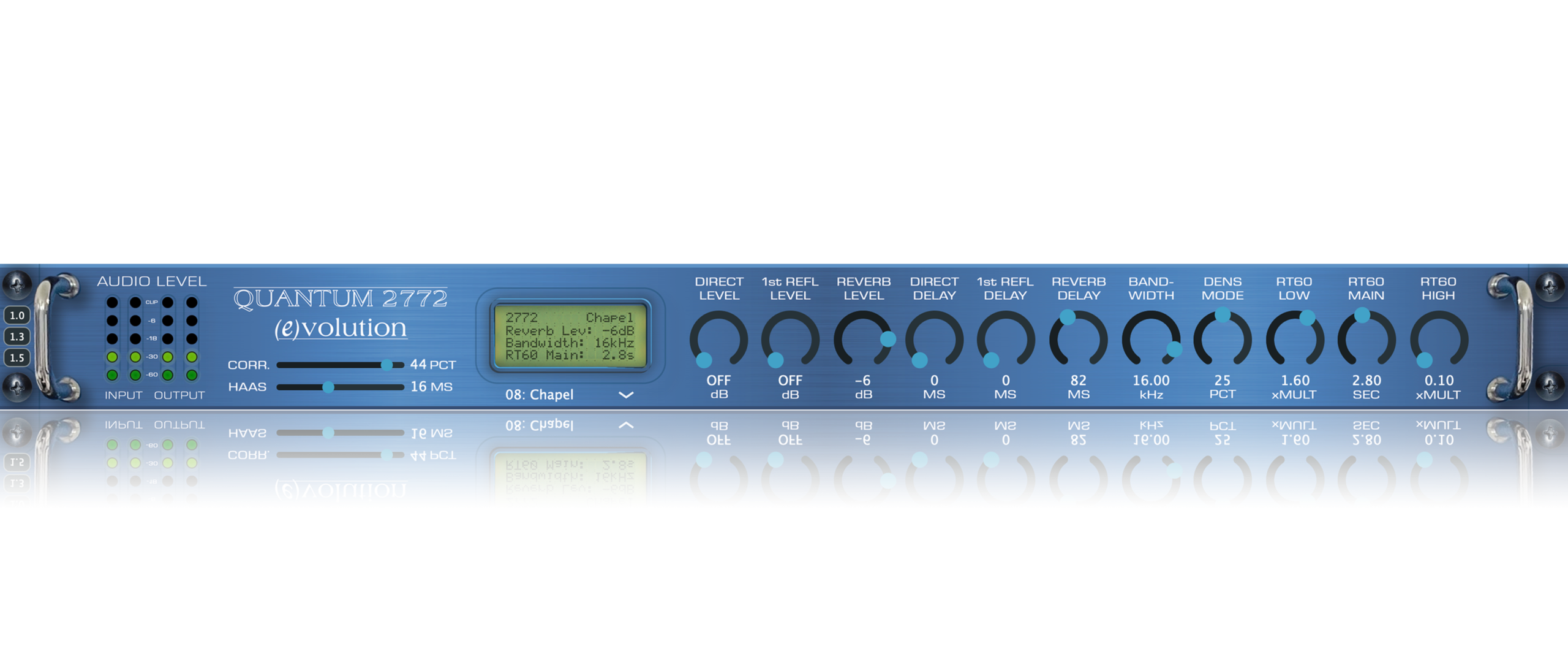Savant Audio Labs – Quantum 2772 Evolution v2.0.3 VST3, AAX x64

Quantum 2772 Evolution is a true algorithmic stereo reverb, inspired by the legendary German room simulator algorithm and offered here for the first time in plug-in format. The Quantum 2772 Evolution reverb algorithm is fundamentally different from other reverb simulators, offering unrivaled realism and depth.
There are three principles that make the Quantum 2772 Evolution uniquely different from the vast majority of other reverb processors –
Precise Modeling of Spatial Resonances:
Reverb simulators typically use “ray tracing” in the time domain to try and provide the auditory cues needed to determine size, depth, and other factors . The Quantum 2772 Evolution takes a different approach, simulating the resonant modes and modal densities of a real room. By modeling the density of modes and the distribution of resonances throughout the room, the listener receives psychoacoustic cues that help create a true sense of space and depth.
Unique non-linear dynamic envelope:
Most reverbs respond linearly to static pulses, resulting in a fairly predictable and two-dimensional sound. Thanks to its interconnected resonator system, the Quantum 2772 Evolution is able to create a much more realistic sound envelope in the attack phase, creating a non-linear system that simulates the complex impedance and inertia characteristics of a real room. The result is a certain clarity of sound, as shorter, softer sounds remain uncluttered, while longer sounds gradually form realistic, complex tails.
Clear, Unmodulated Reverb:
Most reverb simulators rely on modulation to avoid the buildup of harsh resonances in the sound field, which often results in unnatural timing and pitch fluctuations. Because the Quantum 2772 Evolution uses natural interaction and the accumulation of well-coordinated resonances, it doesn’t need to rely on any form of modulation, offering a degree of clarity, naturalness, and pitch stability not typically found in other reverbs.